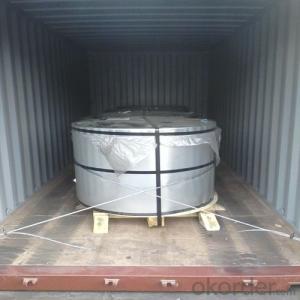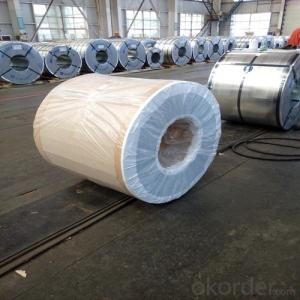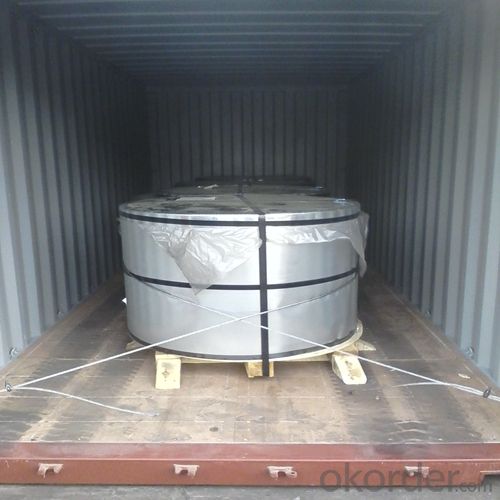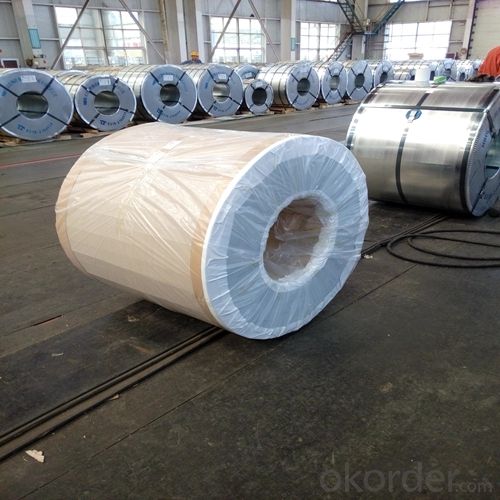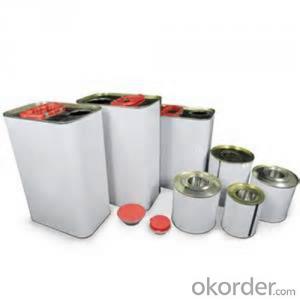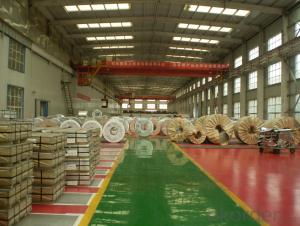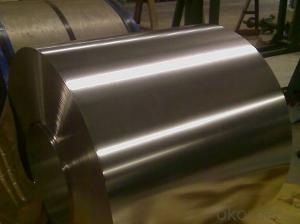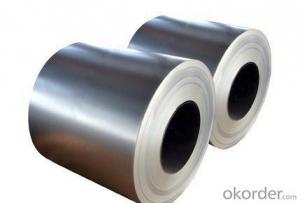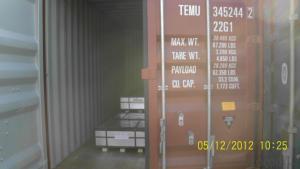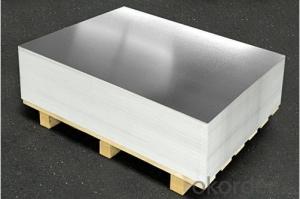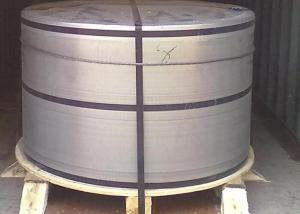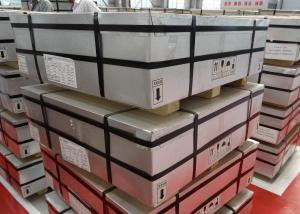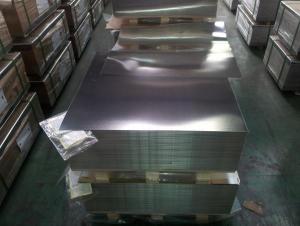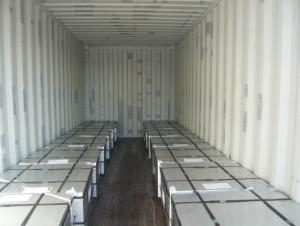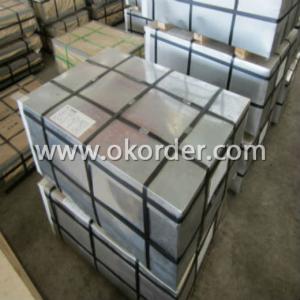Prime Quality ETP and TFS for Metal Package of Chemical Industrial Useage
- Loading Port:
- Shanghai
- Payment Terms:
- TT or LC
- Min Order Qty:
- 25 m.t.
- Supply Capability:
- 30000 m.t./month
OKorder Service Pledge
OKorder Financial Service
You Might Also Like
Specification
1.Structure of Prime Quality ETP and TFS for Metal Package of Chemical Industrial Useage Description
Also known as chromed steel, tin-free steel (TFS) is obtained by coating the metal base (low-carbon steel) with an ultra-thin layer of metallic chrome and then with a chromium oxide layer.
The product complies with ASTM A-657 Specification and is manufactured with low current density (TFS-III) and is supplied in coils (up to 12 metric tons)or sheets.
2.Main Features of the Prime Quality ETP and TFS for Metal Package of Chemical Industrial Useage
Appearance – Tinplate is characterized by its beautiful metallic luster. Products with various kinds of surface roughness are produced by selecting the surface finish of the substrate steel sheet.
Paintability and printability – Tinplates have excellent paintability and printability. Printing is beautifully finished using various lacquers and inks.
Formability and strength – Tinplates have got very good formability and strength. By selecting a proper temper grade, appropriate formability is obtained for different applications as well as the required strength after forming.
Hygienic – Tin coating provides good and non toxic barrier properties to protect food products from impurities, bacteria, moisture, light and odours.
Safe – Tinplate being low weight and high strength makes food cans easy to ship and transport.
Eco friendly – Tinplate offers 100 % recyclability.
Tin is not good for low temperature applications since it changes structure and loses adhesion when exposed to temperatures below – 40 deg C.
3.Prime Quality ETP and TFS for Metal Package of Chemical Industrial Useage Images
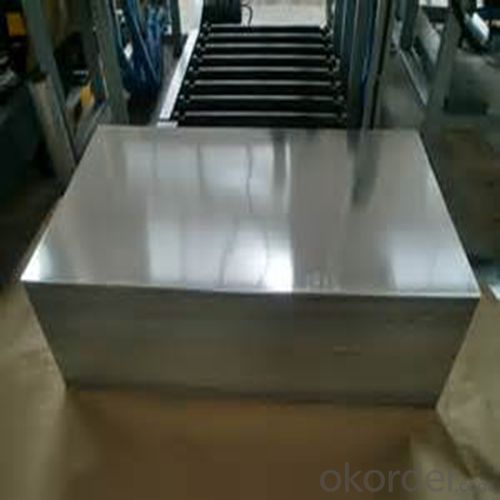
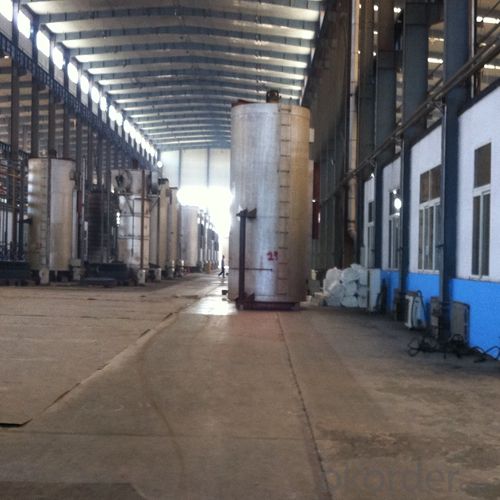
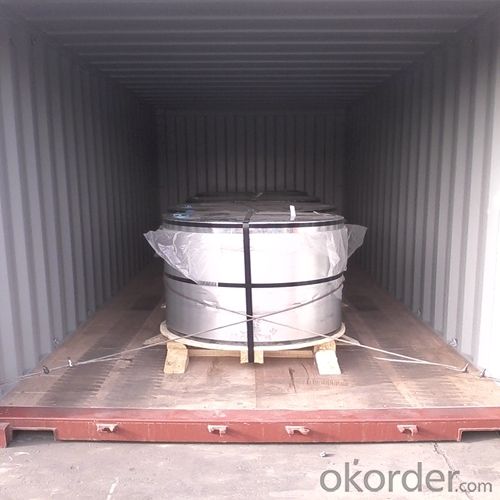
4.Prime Quality ETP and TFS for Metal Package of Chemical Industrial Useage Specification
Specification of :
Standard: ISO 11949 -1995, GB/T2520-2000,JIS G3303,ASTM A623, BS EN 10202
Material: MR,SPCC
Thickness:0.15mm - 0.50mm
Width: 600mm -1150mm
Temper: T1-T5
Annealing: BA & CA
Coil Inner Diameter: 508mm
Weight: 6-10 tons/coil 1~1.7 tons/sheets bundle
Passivation:311
Oil: DOS
Surface: Finish,bright,stone,matte,silver
5.FAQ of Prime Quality ETP and TFS for Metal Package of Chemical Industrial Useage
- How are the tinplates specified?
The tinplates are specified as per the steel base, extent of tempering, the coating weight, annealing method and the surface finish.
- How many types there are for base steels?
The base steels are of three types: Type MR, L, D
- Q: How is tinplate used in the manufacturing of electronic devices?
- Tinplate is commonly used in the manufacturing of electronic devices for its corrosion resistance and excellent conductivity. It is often utilized as a coating material for printed circuit boards (PCBs) to protect them from oxidation and enhance their durability. Additionally, tinplate is utilized in the production of connectors, switches, and other electrical components due to its ability to facilitate smooth electrical flow and ensure reliable performance.
- Q: What are the common surface finishes for tinplate?
- The common surface finishes for tinplate include bright, stone, matte, and lacquered finishes.
- Q: What are the latest innovations in tinplate technology?
- Some of the latest innovations in tinplate technology include the development of lightweight tinplate materials, improved corrosion resistance coatings, advanced printing techniques for high-quality packaging designs, and the use of recycled materials in tinplate production to promote sustainability. Additionally, there have been advancements in the manufacturing processes to enhance efficiency and minimize waste.
- Q: Cookies with tinplate packaging has what advantage?
- Barrier: tinplate cans have excellent barrier properties than any other materials are excellent, gas barrier properties, moisture resistance, shading and aroma were good, and the sealing is reliable, reliable protection products.
- Q: Can tinplate be used for packaging heavy products?
- Yes, tinplate can be used for packaging heavy products. Tinplate is a strong and durable material that can withstand the weight and pressure of heavy items, making it suitable for packaging purposes.
- Q: What are the common surface treatments for tinplate?
- The common surface treatments for tinplate include electrolytic tinplating, chromium plating, and passivation.
- Q: What is the average lifespan of tinplate packaging?
- The average lifespan of tinplate packaging depends on various factors such as usage, storage conditions, and handling. However, tinplate packaging is known for its durability and longevity, and with proper care, it can last for several years or even decades.
- Q: What are the main trends in tinplate packaging design?
- Some of the main trends in tinplate packaging design include minimalist designs, eco-friendly packaging, retro/vintage-inspired designs, and innovative shapes and structures. Additionally, there is a growing emphasis on storytelling and creating a unique brand experience through packaging design.
- Q: How does tinplate perform in terms of insulation properties?
- Tinplate does not perform well in terms of insulation properties as it is a good conductor of heat and electricity.
- Q: Can tinplate be used for industrial or automotive applications?
- Yes, tinplate can be used for industrial or automotive applications. It is commonly used in the manufacturing of cans, containers, and packaging materials due to its durability, corrosion resistance, and ability to be easily formed into desired shapes. In the automotive industry, tinplate can be used for various applications such as body parts, fuel tanks, and electrical components.
Send your message to us
Prime Quality ETP and TFS for Metal Package of Chemical Industrial Useage
- Loading Port:
- Shanghai
- Payment Terms:
- TT or LC
- Min Order Qty:
- 25 m.t.
- Supply Capability:
- 30000 m.t./month
OKorder Service Pledge
OKorder Financial Service
Similar products
Hot products
Hot Searches
Related keywords
